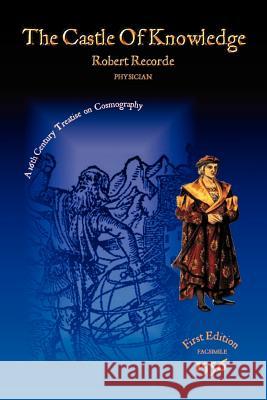The Castle of Knowledge » książka
The Castle of Knowledge
ISBN-13: 9781478355984 / Angielski / Miękka / 2012 / 324 str.
The first edition of Robert Recorde's The Castle of Knowledge was printed at London by Reginalde Wolfe in 1556. The work is a treatise on the celestial sphere, written in the form of a dialogue between a master and a scholar. It is an original and exhaustive study intended to modernise Proclus and Sacrobosco. It deals chiefly with Ptolemaic astronomy but also includes some geographical information as understood in Recorde's time. In the preface to the reader he extols the heavens as God's handiwork and consequently meet for study. He also praises the rare wisdom and practical knowledge that astronomy bestows, thereby soliciting approval of both the old heaven and the new earth. Recorde's writings reflect the strong traditions which he, in common with most educated people of his time, found difficult to discard. These Aristotelian and Ptolemaic traditions postulated that the sub-lunary realm, the seat of the base elements, was subject to change and corruption; in contrast, the heavenly or celestial realm was necessarily pure, immutable and eternal. However, in this book Recorde provides the English reading public with the first significant reference to the heliocentric theories of Nicholas Copernicus. In the guise of the master he briefly mentions the theories to his scholar, explaining that according to Copernicus the sun is at the centre of the world and not the earth, and that the earth moves. This elicits the response from the scholar: 'I desire not to heare such vaine phantasies, so farre against common reason... and therefore lette it passe for ever, and a daye longer'. At which the master reacts by admonishing him, telling him that he was 'to yonge to be a good iudge in so greate a matter: it passeth farre your learning... therefore you were best to condemne no thinge that you do not well vnderstand'. The Castle of Knowledge was reprinted in 1596, forty years after the first edition, by which time it was already outdated by later works on Copernican astronomy.
Zawartość książki może nie spełniać oczekiwań – reklamacje nie obejmują treści, która mogła nie być redakcyjnie ani merytorycznie opracowana.











